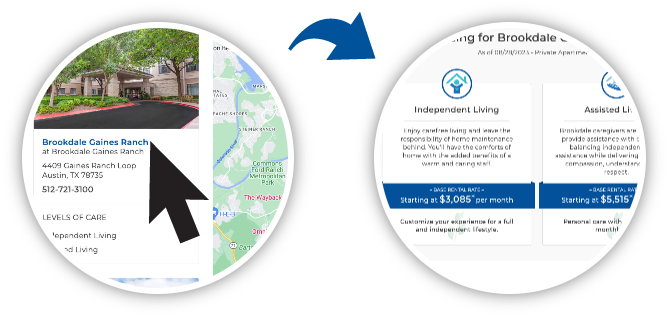September 30, 2021
Dementia and Friendships: 4 Tips for Maintaining a Relationship
Most of us define ourselves by our relationships—they are integral to who we are. We are moms and dads, brothers and sisters, sons and daughters, husbands and wives; but also we are work buddies, neighbors, committee members and dear friends. Friendships are cherished relationships because we choose to make them and many of them last a lifetime. When our friends give up on us, we lose a part of ourselves.
Simply put, a person living with dementia is still your friend. They are the same person you’ve shared laughs and experiences with. Now that they have a dementia diagnosis you might hear them repeat a story, or forget a detail, and it might be harder for them to focus in certain situations, but you can still enjoy spending time with them. In fact, research shows that maintaining social relationships can help us all as we age, not just people living with the disease. Keeping social connections helps older adults maintain their identity and improves their quality of life.
I was reminded of the power of social connections when I met a 103-year-old resident named Dorothy at Brookdale College Square. Dorothy is living with dementia, but that doesn’t stop her from participating is a calendar full of activities. You can see her face light up when she is with her son, Gary, or participating in activities with the Clare Bridge Programs Coordinator, Pamela. Gary sees the positive impact the connectivity has on his mother.
“It became important to get her involved and active and be out with people,” Gary said. “I think it keeps her more engaged and so as long as she’s not left to just have to think of things on her own she’s fine. It’s the activities and just the one-on-one interaction with either residents or the staff that make it.”
These four tips can help you maintain a meaningful relationship with a loved one who is living with dementia:
- Acknowledge the diagnosis.
Most people living with the disease would rather have friends ask questions than make assumptions about what they want or how they feel. Discussing a diagnosis openly can be more comfortable for everyone. Share your own feelings with your friend and acknowledge your discomfort. The person living with dementia will let you know what they need from you. - Make adjustments, not excuses.
A person living with dementia may need you to speak slower, provide more detailed explanations or occasionally repeat what you’ve said. They may have a better experience in a quiet restaurant, or prefer to watch a movie at their home rather than in a theater. Don’t let their diagnosis be a reason for avoidance. You can do many of the activities you’ve enjoyed doing together. You just may have to get creative in how you do them. It is important to be open to adjusting your normal shared activities—most can be modified to make your loved one feel more comfortable - Be seen.
Many people living with dementia find it easier to communicate in person. Having conversations face-to-face and watching someone talk leads to greater recognition and understanding. If you can’t be there in person, try using a video chat service like Skype, FaceTime or Zoom for larger group discussions. - Use a journal to help facilitate conversations.
A journal, such as An Inspired Life, can help guide your conversations and let you know what a person living with dementia needs from you as a friend. Understanding their responses to questions about what makes them happy, what they need to live well, and what they fear the most can help guide you to be a better, more understanding friend.
I challenge you to stay connected to those you love who are living with dementia. Be open and honest and find creative ways to spend time together. Are you a care partner for someone living with the disease? Tell us what’s worked for you! I invite you to share your experience in the comments below. Your story may just help someone else connect with their loved one.
- Alzheimer's & Dementia
- Caregiver's Corner
- COVID-19
- Health, Safety and Wellness
- Financial Well-Being
- Passion & Purpose
- The Journey to Senior Living
- Trending Now
- Socialization & Relationships
- Brookdale Solutions
- Brookdale Vision and Growth
- October 2025
- September 2025
- August 2025
- July 2025
- June 2025
- May 2025
- April 2025
- March 2025
- February 2025
- January 2025
- December 2024
- November 2024
X
Let us help find the right community for you!



